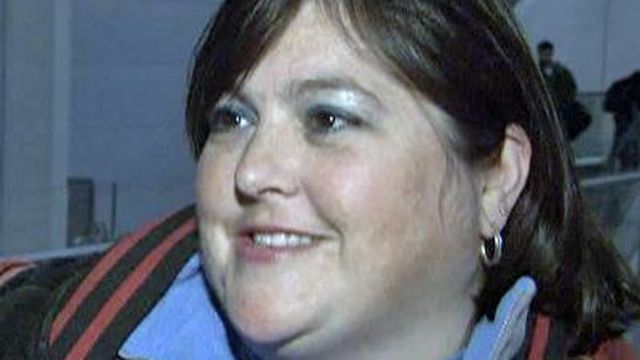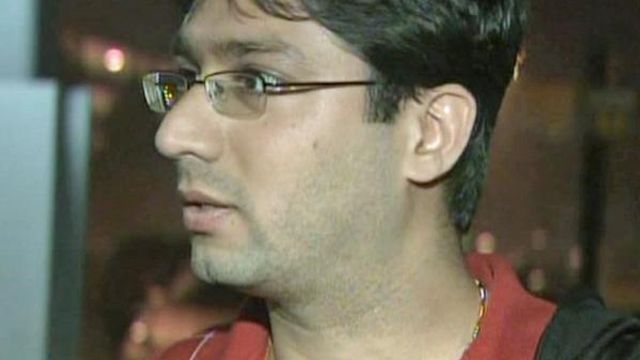Airline attack could lead to more scanners
U.S. Rep. David Price, D-NC, said full-body scanners are in limited use at Raleigh-Durham International Airport.
Posted — UpdatedDutch officials said Wednesday they will immediately begin using the machines at Amsterdam's airport, where the Nigerian accused of trying to blow up the Northwest Airlines plane began his flight.
And a key European lawmaker also called for greater use of the scanners, which are designed to spot explosives and other non-metallic objects that a metal detector would miss.
In the U.S., the Transportation Security Administration has not said whether it will accelerate its plans to roll out the machines. TSA already operates 40 of them in U.S. airports, has bought an additional 150 and plans to buy 300 more.
That covers only a small slice of the 2,100 security lanes at the nation's 450 airports. But TSA could find the climate more favorable for an expansion.
U.S. Rep. David Price, D-NC, said the machines are in limited use at Raleigh-Durham International Airport.
At least one congressman who has pushed for restrictions on full-body scanners said he would moderate his stance if the technology could better respect privacy. According to several companies that make full-body scanners, software – rather than human screeners - eventually could be capable of detecting suspicious objects on travelers' bodies as they pass through the machines.
"This is a solution everyone can live with," said Rep. Jason Chaffetz, R-Utah, who sponsored a measure that would prohibit the use of whole-body imaging for "primary" screening, in place of metal detectors. The House approved the measure 310-118, and it is pending in the Senate. "The goal should be to be more effective, but less invasive."
Body scanners that peer through clothing have been available for years, but their introduction has been slowed by objections from privacy advocates such as the American Civil Liberties Union, which has denounced the machines as a "virtual strip search" because they display the body's contours on a computer screen with great clarity.
"There's real risk here because the machines are designed and are capable of taking detailed naked images," said John Verdi, of the Electronic Privacy Information Center.
Some RDU passengers said Wednesday that they would go through the machine if they had to.
"It's like going to the doctor's office. You always get a little embarrassed, but it is something they have done over and over," said passenger Lisa Rhodan.
Umar Farouk Abdulmutallab, the passenger who authorities say concealed explosives in his underwear and tried to ignite them as his plane was coming in for a landing in Detroit, did not go through such a scan at Amsterdam's Schiphol airport. The European Parliament voted last year against using such machines.
New software, however, can protect travelers' privacy by producing a stylized image of the body instead of a more detailed picture.
Price said faces can be blurred in photos and images can be immediately destroyed. Passengers could also opt for a pat down instead.
In announcing the government's change in policy, Dutch Interior Minister Guusje Ter Horst said full-body scanners probably would have spotted the explosives on Abdulmutallab.
"Our view now is that the use of millimeter wave scanners would certainly have helped detect that he had something on his body, but you can never give 100 percent guarantees," she said.
Fifteen full-body scanners with privacy-protecting software will be used at the Amsterdam airport to screen passengers boarding flights to the U.S., authorities said.
The 15 scanners will not be enough to handle all such passengers, so some people will need to be patted down. Schiphol is waiting for a government directive on whether to buy more machines, airport spokeswoman Kathelijn Vermeulen said. Full-body scanners can cost between $130,000 and $200,000.
The broader European opposition to such decisions seemed to be fading Wednesday as Peter van Dalen, vice chairman of the European Parliament's transport committee, said a demonstration of the newer technology showed the scanners do not violate travelers' privacy. He urged the installation of the equipment across the 27-nation bloc.
TSA wouldn't comment on whether it plans to adopt something like the software that Amsterdam officials praised.
However, some manufacturers, including Rapiscan Systems and L-3 Communications Holdings Inc., already offer privacy enhancements such as blurred faces or bodily images that look like chalk outlines. TSA just bought 150 machines from Rapiscan, and L-3 makes scanners used in Amsterdam and the U.S.
Under TSA rules in effect in the U.S., images produced by full-body scans are viewed in a location not visible to the public. The security officer assisting the passenger cannot view the image and the officer who sees the image never sees the passenger.
With such measures in place, TSA has been running 40 full-body scanners at 19 U.S. airports with apparently few complaints from the public. Most of the machines are used for secondary screenings of passengers after they pass through a metal detector. But at checkpoints in six airports, they are being used instead of metal detectors: Albuquerque, N.M.; Las Vegas; Miami; San Francisco; Salt Lake City; and Tulsa, Okla.
In Salt Lake, fewer than 1 percent of passengers who were in a security line with the scanner have opted out and asked for a pat-down search instead, according to Dwayne Baird, a TSA spokesman.
In fact, around the country, many passengers have no objections to the machines and consider them less intrusive than a pat-down.
"I'd rather be safe than be embarrassed," said George Hyde of Birmingham, Ala., who was flying out of Salt Lake with his wife on Wednesday. "We're very modest people, but we'd be willing to go through that for security."
"Anything to avoid a bomb - anything," said Ellen Massar, said at the Miami airport after arriving from Amsterdam. "If they would ask me to undress totally" - and other passengers had to do so as well - "I would do it."
Her husband, Willem Massar, added: "It's the world we live in. Hopefully it gets better."
• Credits
Copyright 2024 by WRAL.com and the Associated Press. All rights reserved. This material may not be published, broadcast, rewritten or redistributed.






